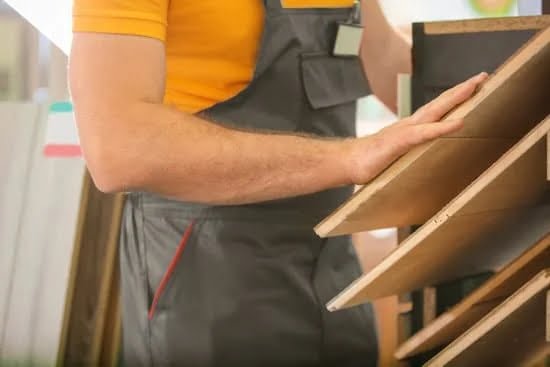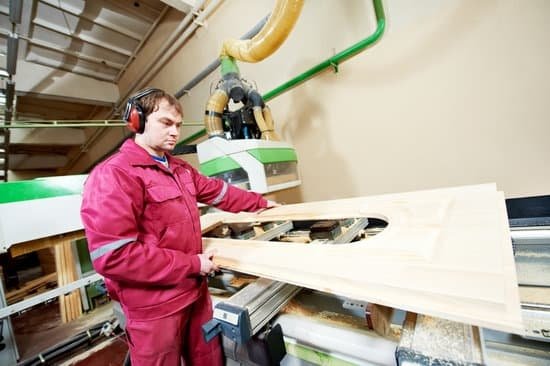Are you looking to sell your woodworking tools but unsure of where to start? Whether you’re downsizing your workshop, upgrading equipment, or simply looking to make some extra cash, finding the right platform to sell on is crucial. In this article, we will explore various avenues for selling woodworking tools and provide helpful tips along the way.
First and foremost, it’s important to understand why someone might need to sell their woodworking tools. Perhaps you’re a seasoned woodworker who no longer has the time or interest in pursuing the craft. Or maybe you’ve upgraded your tools and are now left with duplicates or outdated equipment. Regardless of the reason, knowing how to effectively sell your woodworking tools can help you make a profit while passing on quality equipment to someone who will appreciate it.
When it comes to selling any item, evaluating its condition is key. In the case of woodworking tools, assessing their overall condition will greatly affect their value and desirability in the market. We’ll guide you through the process of inspecting your tools, providing tips on cleaning, repairing, and packaging them for maximum appeal and value.
Now that we understand the need and importance of selling woodworking tools as well as evaluating their condition, let’s explore our options for finding potential buyers. From local options such as classifieds and garage sales to popular online marketplaces like eBay and Etsy, we’ll discuss the pros and cons of each platform so that you can choose what best suits your needs.
Looking to sell your valuable woodworking tools? Let’s dive into the exciting world of finding potential buyers and getting top dollar for your items.
Evaluating the Condition of Your Woodworking Tools
Before selling your woodworking tools, it is essential to evaluate their condition to determine their value and attract potential buyers. Assessing the condition of your tools not only helps you set a fair price but also allows you to identify any necessary repairs or cleaning that may increase their appeal.
To begin evaluating the condition of your woodworking tools, start by inspecting each tool individually. Look for any visible signs of wear, such as scratches, rust, or chipped edges. Take note of any missing parts or accessories that could affect the functionality of the tool.
Cleaning your woodworking tools thoroughly is crucial before putting them up for sale. This will help enhance their appearance and make them more appealing to potential buyers. Wipe down each tool with a clean cloth and use an appropriate cleaner to remove any dirt, grease, or debris. Consider using lubricants on moving parts to ensure they operate smoothly.
After cleaning, conduct a thorough inspection to identify any repairs that need to be made. Common repairs may include sharpening blades, replacing handles or grips, or fixing loose parts. It is essential to repair these issues before listing your tools for sale as buyers are more likely to pay top dollar for items in good working order.
To maximize the perceived value of your woodworking tools when selling them online or through other platforms, it is important to package them properly. Invest in appropriate packaging materials such as bubble wrap, packing paper, and sturdy boxes. Take photographs from different angles and write detailed descriptions highlighting the key features and condition of each tool.
| Evaluating the Condition of Your Woodworking Tools |
|---|
| Inspect each tool individually for wear, damage, or missing parts. |
| Clean tools thoroughly to enhance their appearance and appeal. |
| Identify and perform necessary repairs before listing the tools for sale. |
Local Options for Selling Woodworking Tools
When it comes to selling woodworking tools, exploring local options can be a great way to connect with potential buyers in your community. There are several avenues you can take advantage of, including local classifieds, flea markets, and garage sales.
One option is to utilize local classifieds such as newspaper advertisements or online platforms like Craigslist. This allows you to reach a wide audience of buyers who are specifically looking for woodworking tools. When creating your listing, be sure to include detailed descriptions and clear photos of the tools you are selling. Providing information about the brand, condition, and any unique features can help attract serious buyers.
Flea markets are another popular choice for selling woodworking tools locally. These events often attract both hobbyists and professionals who appreciate the value of quality tools at affordable prices. Setting up a booth at a flea market allows you to interact directly with potential buyers, answer their questions, and showcase the quality of your tools firsthand.
Additionally, hosting a garage sale can be an effective way to sell your woodworking tools while also decluttering your home. Promote your garage sale through social media, community bulletin boards, or word of mouth to attract interested buyers. Make sure that all the tools you’re selling are organized and presented neatly so that they catch the eye of potential buyers.
While these local options offer convenience and opportunities to negotiate prices face-to-face with buyers, there are some drawbacks as well. For example, reaching a large enough audience may require additional advertising efforts on your part. Additionally, there is no guarantee that all potential buyers will be knowledgeable about woodworking tools or appreciate their value.
Overall, leveraging local options for selling woodworking tools provides a chance to engage with interested buyers in-person while also raising awareness within your community.
Online Marketplaces for Selling Woodworking Tools
When it comes to selling woodworking tools, online marketplaces provide a convenient and effective platform to reach a wide audience of potential buyers. Here are some popular online marketplaces where you can sell your woodworking tools:
eBay
eBay is one of the largest online marketplaces where you can list your woodworking tools for sale. It offers a wide range of categories and attracts millions of users looking for various products, including tools. One advantage of selling on eBay is the auction feature, allowing potential buyers to bid and potentially drive up the price of your tools. However, keep in mind that there may be listing fees and seller fees associated with using eBay.
Etsy
Etsy is known as a marketplace for handmade and vintage items, making it an excellent platform to sell unique or specialty woodworking tools. If you have custom-made or intricately designed woodworking tools, Etsy’s community of artisans and craft enthusiasts might be interested in purchasing them. The site also allows you to set up your own shop, creating a personalized brand identity for your woodworking tool business.
Craigslist
Craigslist is a free online classifieds platform that operates locally, making it ideal if you prefer selling your woodworking tools within your immediate area. It allows you to list items without any upfront fees, but be mindful of potential scams or unreliable buyers when using this platform. Meet in person with buyers at a safe location or consider accepting payment through secure methods like PayPal.
When selling on any online marketplace, there are a few considerations to keep in mind. Take high-quality photos of your woodworking tools from different angles and provide clear and detailed descriptions highlighting their features and condition. Use keywords relevant to woodworking enthusiasts in your listings so that potential buyers can easily find your products through search filters.
Specialty Woodworking Tool Retailers
When looking to sell your woodworking tools, one option to consider is specialty woodworking tool retailers. These are businesses that specialize in buying and selling woodworking tools, making them an ideal place to find a fair price for your items. Whether you prefer physical stores or online platforms, there are several retailers that can help you sell your tools successfully.
Physical Stores:
One option for selling your woodworking tools is to visit physical specialty woodworking tool retailers in your area. These stores often have a knowledgeable staff who can assess the value of your tools and offer a fair price. They may also provide an opportunity for you to showcase your tools directly to potential buyers.
Some well-known physical specialty woodworking tool retailers include Woodcraft Supply, Rockler Woodworking and Hardware, and Highland Woodworking. These stores have established reputations within the woodworking community and are trusted sources for both buying and selling quality woodworking tools.
Online Stores:
In addition to physical stores, there are also online specialty woodworking tool retailers where you can sell your items. These online platforms provide convenience and reach a wider audience of potential buyers. Online stores like Tools for Working Wood and Fine Tools offer options for both buying and selling pre-owned woodworking tools.
Utilizing specialty woodworking tool retailers, whether physical or online, can be a great way to sell your items within a targeted community of woodworkers who understand the value of quality tools. However, it’s important to research each retailer’s policies on pricing, fees, and commissions before making any decisions.
Overall, specialty woodworking tool retailers provide a dedicated marketplace for selling your woodworking tools. Whether you prefer the convenience of online platforms or the personal touch of visiting physical stores, these retailers can connect you with potential buyers and ensure that you receive a fair price for your items. Consider exploring these options when deciding where to sell your woodworking tools.
Social Media and Online Communities for Selling Woodworking Tools
Social media platforms and online communities can be valuable resources for selling woodworking tools. These platforms allow sellers to reach a large audience of potential buyers who are specifically interested in woodworking. Here are some tips for effectively promoting your tools through social media and online communities:
- Identify the right platforms: Start by identifying the social media platforms and online communities that are popular among woodworking enthusiasts. Some popular options include Facebook groups dedicated to woodworking, online forums such as Reddit’s r/woodworking, and Instagram accounts focused on woodworking.
- Create engaging posts: When promoting your tools on social media, it’s important to create engaging posts that catch the attention of potential buyers. Include high-quality photos of your tools, along with detailed descriptions and any unique features or qualities. Consider using professional photography or creating videos to showcase the tools in action.
- Engage with the community: Building relationships within the woodworking community is crucial for successful selling. Engage with other woodworkers by commenting on their posts, sharing tips or advice, and participating in discussions. This will help establish you as a trusted member of the community and increase the likelihood of finding interested buyers.
- Utilize relevant hashtags: Hashtags can significantly improve the visibility of your posts on social media platforms like Instagram and Twitter. Research popular hashtags related to woodworking and incorporate them into your posts to expand your reach to potential buyers who may not already be following you.
- Offer discounts or promotions: To incentivize potential buyers, consider offering special discounts or promotions exclusively through social media platforms or online communities. This can help attract attention to your listing and create a sense of urgency among buyers.
- Be responsive and transparent: When selling through social media or online communities, it’s important to be responsive to inquiries from interested buyers. Promptly answer any questions they may have about the tools’ condition, specifications, or pricing. Transparency is key for building trust with potential buyers.
By utilizing social media platforms and online communities dedicated to woodworking, sellers can effectively target their audience and increase the chances of selling their woodworking tools quickly and at a fair price.
Local Woodworking Clubs and Associations
One option for selling woodworking tools is to connect with local woodworking clubs and associations. These groups are often comprised of individuals who have a passion for woodworking and may be interested in purchasing used tools. Joining these clubs or associations can provide a valuable networking opportunity, allowing you to meet potential buyers directly.
To effectively market your woodworking tools within these communities, it’s important to actively engage with other members. Share photos and information about the tools you are selling on the club’s online forum or social media groups. Be sure to highlight any unique features or qualities that make your tools stand out. Additionally, attending club meetings and events can help build relationships with fellow woodworkers who may be interested in purchasing your items.
When pricing your woodworking tools within these communities, it’s crucial to consider their value to woodworkers specifically. Research the market value of similar tools and take into account their condition, age, and rarity. It may also be helpful to ask other club members for advice on setting fair prices. Offering a discount for fellow members can also create a sense of camaraderie and potentially attract more buyers.
Auctions and Consignment Shops for Woodworking Tools
Auctions and consignment shops can be excellent options for selling your woodworking tools. These platforms provide a unique opportunity to reach a wide range of potential buyers who are specifically interested in woodworking equipment. In this section, we will explore the benefits of utilizing auctions and consignment shops, as well as provide guidance on the process involved in selling through these platforms.
When considering auctions, it is important to understand that they can create a sense of excitement and competition among bidders, potentially driving up the price of your woodworking tools. This makes auctions particularly advantageous if you have high-value or rare tools that may attract collectors.
Research local auction houses that specialize in tools or woodworking equipment to ensure a targeted audience for your listings. It is crucial to factor in any fees or commissions that may be charged by the auction house when determining your pricing strategy.
Consignment shops offer another avenue for selling your woodworking tools. These establishments typically handle the marketing, display, and sale of your items on your behalf. This can be especially convenient if you do not have the time or resources to manage individual sales independently. Consignment shops often have an established customer base with a specific interest in woodworking equipment, increasing the possibility of finding potential buyers quickly.
Before entering into a consignment agreement with a shop, thoroughly research their reputation and track record in selling woodworking tools. Ask about their commission structure and any additional fees associated with displaying and promoting your items. Take note of how long they typically retain unsold items before returning them to you. It’s crucial to weigh these factors against the convenience they offer to determine if consigning with a particular shop is financially beneficial for you.
Considerations such as location, target audience, and overall condition of your woodworking tools should also influence your decision between auctions and consignment shops. Whichever option you choose, remember to accurately describe and photograph each tool to attract potential buyers effectively.
By exploring options like auctions and consignment shops, you can broaden your reach and increase the chances of finding buyers who appreciate the value and quality of your woodworking tools.
Proper Pricing Strategy for Woodworking Tools
When it comes to selling woodworking tools, having a proper pricing strategy is essential. Pricing your tools accurately can help attract potential buyers and ensure that you receive fair value for your items. Here are some important factors to consider when determining the right price for your woodworking tools.
Firstly, it’s crucial to research the market value of similar tools. Look for comparable listings on online marketplaces and check what other sellers are asking for similar items. Take note of any variations in brand, condition, age, and functionality that may influence the price. This research will give you a general idea of what buyers are willing to pay and help you set a competitive price.
Next, assess the overall condition of your woodworking tools. Evaluate any wear and tear, damage, or repairs that have been done. Be honest with yourself about the condition of the tool and how it might affect its value. Keep in mind that well-maintained tools tend to command higher prices than those in poor condition.
Consider factors such as brand reputation and demand when determining pricing. High-quality brands with strong reputations tend to hold their value better and may justify higher prices. Similarly, if there is high demand for certain types of woodworking tools due to popularity or scarcity, this might also allow you to set a higher price.
Another important aspect of pricing your woodworking tools is considering any additional accessories or extras that come with them. If your tools come with cases, spare parts, or additional accessories that enhance their value or usefulness, be sure to factor these into your pricing strategy.
Lastly, be open to negotiation when selling your woodworking tools. Some buyers may be willing to pay slightly less than your asking price if they can negotiate a deal. Set a realistic starting point for negotiation but also establish a bottom line below which you are not willing to go.
By taking all these factors into account while establishing a pricing strategy for your woodworking tools, you can increase your chances of attracting interested buyers and maximizing the value you receive for your items. Remember to regularly reassess your prices based on market trends and adjust accordingly to increase the likelihood of a successful sale.
Conclusion
In conclusion, when it comes to selling woodworking tools, finding the right platform is crucial for a successful sale. This article has explored various options available for selling woodworking tools, both locally and online. Whether you choose to sell through local options such as classifieds, flea markets, or garage sales, or prefer the convenience of online marketplaces like eBay, Etsy, or Craigslist, it is important to assess the condition of your tools before selling them.
One key consideration when selling woodworking tools is pricing. It is essential to determine a fair price for your tools in order to attract potential buyers. By evaluating the market value of similar items and pricing competitively, you can increase your chances of a successful sale.
Additionally, don’t underestimate the power of social media and online communities when it comes to selling your woodworking tools. Platforms like Facebook groups and online forums provide an opportunity to engage with like-minded individuals who may be interested in purchasing your tools.
Lastly, networking within local woodworking clubs and associations can help connect you with potential buyers who appreciate and understand the value of quality woodworking tools. By actively participating in these communities and marketing your products effectively, you can increase visibility and generate interest in what you have to offer.
Frequently Asked Questions
How do I sell my woodworking?
Selling woodworking products can be done through various channels, both online and offline. One effective method is to create an online presence through platforms such as Etsy or Instagram, where you can showcase your woodworking creations and attract potential buyers.
Building a website or joining local craft fairs and markets are also great ways to reach customers. It’s important to focus on building a strong brand, showcasing high-quality photographs of your work, and providing detailed descriptions of each product’s unique features and materials used.
How to get free woodworking tools?
Acquiring free woodworking tools might require some creativity and resourcefulness. One approach is to join local woodworking communities or clubs where members often share tips, techniques, and occasionally even tools with each other.
Freecycle groups or online classifieds like Craigslist could provide opportunities for finding people who are giving away or selling used tools at a lower cost. Additionally, keep an eye out for garage sales or estate sales where you may come across someone looking to offload their woodworking tools at a reasonable price or possibly even for free.
What is the tool most used in your woodworking shop?
The tool that gets the most use in a woodworking shop can vary depending on personal preference and the specific projects being worked on; however, one commonly utilized tool is the table saw. A table saw is a versatile piece of equipment that helps perform precise cuts on various types of wood quickly and efficiently.
Its adjustable blade height and ability to make straight rip cuts are essential for many woodworking tasks such as cutting boards, planks, or panels accurately. The table saw’s versatility makes it indispensable for both small-scale projects and larger furniture builds in many workshops around the world.

Hi everyone! I’m a woodworker and blogger, and this is my woodworking blog. In my blog, I share tips and tricks for woodworkers of all skill levels, as well as project ideas that you can try yourself.





